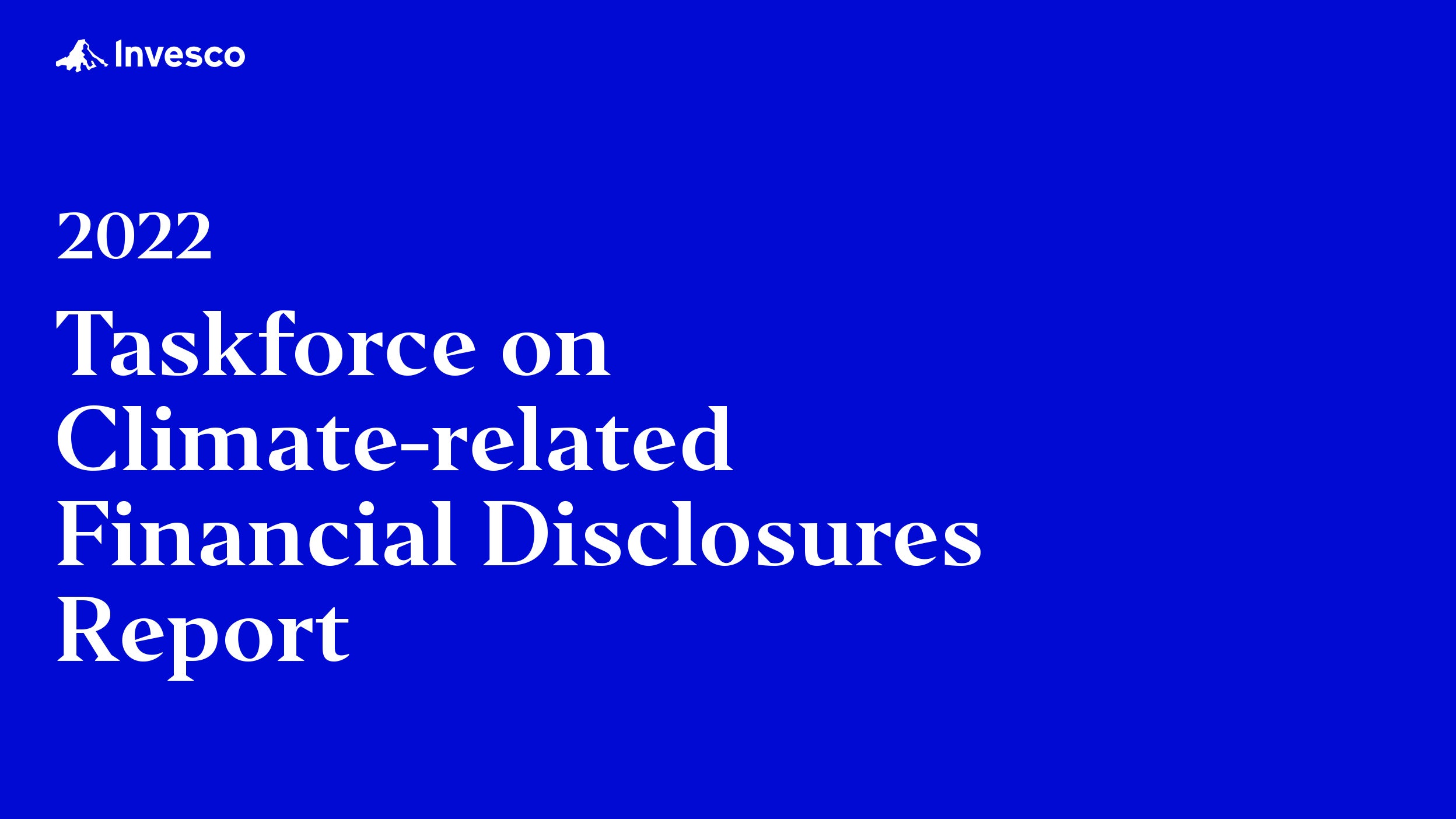
ESG
Climate investing: mitigation and adaptation
Climate change is challenging societies and to address the risks it’s essential we invest in mitigation and adaptation strategies. Find out more.

The way that companies are responding to disruptive trends is becoming increasingly important in determining their long-term performance. An Invesco study on disruption found that companies themselves are pessimistic about the future and about half of the companies thought that 25-50% of the FTSE 350 would be displaced in the next 10 years.
Our research focuses on four fundamental forces of disruption that businesses are faced with today. Here's how we define them in this report:
Digital disruption The potential of emerging digital technologies like artificial intelligence, machine-learning or robotics to fundamentally change companies’ business or operating models.
Environmental disruption The potential of climate and environmental pressures to significantly impact the performance of a company.
Changing consumer tastes/preferences The changing preferences of customers, towards alternative products or services, that may have material impact on companies’ performance.
Regulatory change New regulations, either domestic or international, that may significantly affect companies’ business models and/or operating models.
For investors, focusing on a company’s management of disruption drivers and direction of change, as part of ESG analysis, is more important than ever before.
Taking environmental disruption as one aspect of these transitional forces, issues such as climate change and waste and water management, are more relevant than ever for investors. Indeed, the EU estimates that around €520-€575bn are needed in annual energy and infrastructure investments to achieve a net-zero greenhouse gas economy; while natural disasters caused a record €283bn in economic damages in 2017 (source: A clean planet for all, European Commission, 28 November 2018).
Despite a growing consensus on the need for better environmental solutions and operations, less than one in five FTSE companies say they are disclosing detailed information on the strategic response they are taking to digital or environmental disruption within their corporate reporting. Indeed, the Invesco study found that while 40% of companies believe environmental disruption is important for their future, only 9% believe they report on this in a meaningful way.
The study also surveyed fund selectors, and more than one third of fund selectors argue that it is important for fund managers to think about environmental disruption. Yet, the fund selectors in our survey have mixed views about the ability of managers to identify and mitigate the impact of disruptive trends within their funds.
While 66% are confident in fund managers’ competence when it comes to digital disruption, less than one-third say the same about environmental disruption. This indicates a challenge to fund managers to improve the narrative around how environmental factors are incorporated into investment decision making.
Asset managers are only one part of the value chain in these forces of change…
Asset managers are only one part of the value chain in these forces of change, as the vehicle for the asset owners’ interests, and are restricted by the solutions and data offered by companies. In order to gather relevant investment information and as core part of our stewardship responsibilities as active managers, it is imperative that we regularly engage in dialogue with companies on these topics.
We clearly see increasing evidence of companies addressing environmental disruption and encouraging examples of improving disclosure. For example, the attractiveness of a paper and pulp company we own is enhanced by the investment opportunity the company sees in using wood instead of oils in their production processes, with overall lower carbon footprint.
Their solution would have a competitive advantage by offering a transition towards cleaner plastics. This company has seen the need to improve their disclosure and narrative around environmental management aligned to this strategic opportunity they see from environmental trends.
Our study has examined the opinions of fund selectors and FTSE 350 companies in the UK on the materiality and disclosure of environmental disruption, amongst other disruptive forces. From its findings, it is clear that there are challenges ahead but also opportunities for those companies and investors that can successfully navigate the future, through continued recognition of the changing trends and more open and regular dialogue.
Explore the full findings in the report.

Climate investing: mitigation and adaptation
Climate change is challenging societies and to address the risks it’s essential we invest in mitigation and adaptation strategies. Find out more.

2022 Global TCFD Report
Our fourth annual TCFD Report provides a comparable, investor-relevant disclosure on our activities and capabilities in climate-aware investing. Find out more.

Invesco’s evolving fund range for sustainable investing – Article 8 and 9 funds
An Article 6, 8 and 9 fund classification help make investors aware about a fund’s sustainable characteristics. Learn more about Invesco’s Article 8 and 9 fund range.

